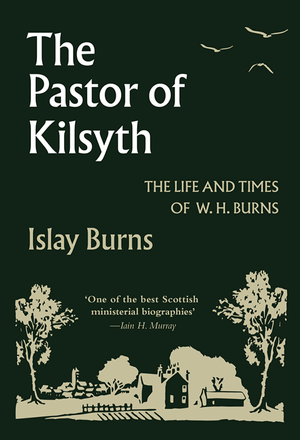This is a slow-burn biography about what often looks like a slow-burn life. First published in 1860, its approach can seem ponderous. Some elements might bewilder anyone but a two-hundred year old Scotsman.
So why persevere with the book? Because it is at once so far removed from us and so close to us. Our age loves fireworks. We feed on explosions. We idolise men who burst onto the scene in a shower of sparks, only to fizzle out as damp squibs; or who spin into a tornado of fleshly flame before self-combusting in destructive flare-ups. We applaud globe-trotting uber-pastors of mega-churches who speak to teeming hordes of fanboys.
Most of us do not, and will not, live such lives, or observe them close at hand. In truth, these are not the lives to which we should aspire, even if the Lord should thrust prominence upon us. William Hamilton Burns, the subject of this biography, was a man who moved not so much on the margins as on his appointed course, which rarely brought him centre stage.
The story traces this life in a time of doctrinal laxity and spiritual lukewarmness. Primed by a godly family for faithfulness and preserved in his path by the Lord, Burns embraced his calling and his opportunities. He preached and he pastored, he lived and worked among his people as a true under-shepherd, knowing and being known by them. His was a largely ordinary life employed in using God’s ordinary means of grace.
The book describes a season in which the Lord blessed those ordinary means to an extraordinary degree, with the joys and challenges which that brought. It also tells of sacrifices made for the sake of the gospel in the Disruption of 1843, out of which the Free Church of Scotland was formed. A short selection of addresses and sermons is included. Especially useful is the one on how to conduct a revival. (Short answer: ‘You don’t; God does – though we may and must seek his blessing by his appointed paths.’)
So why persevere with the book and with the life? Because this is the story of a man who proves why pastors should persevere. It is the ministry most of us will either exercise or receive, not seeking man’s camera and spotlight, but living under the eye and smile of the Lord. It is a tale of faithfulness over the long haul, in holy habits of ministerial usefulness. Even allowing for a son’s affection in the author’s gaze, the life burnished is one of spiritual gold, and for that reason it shines.
Jeremy Walker
Crawley




